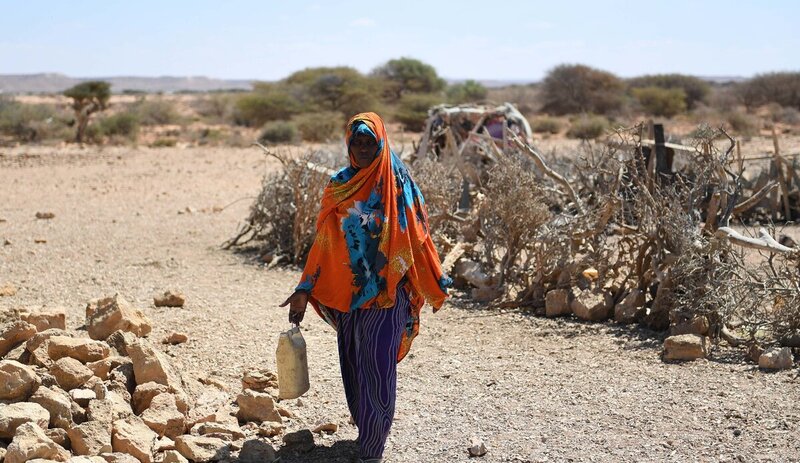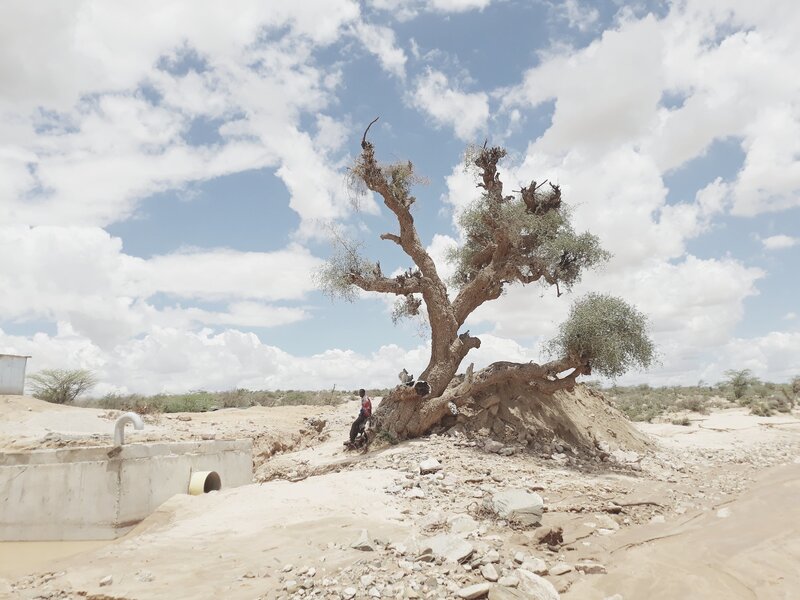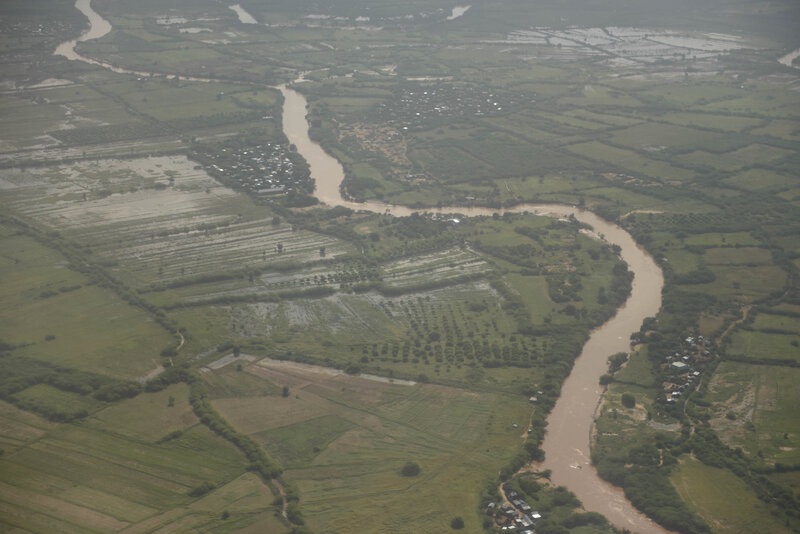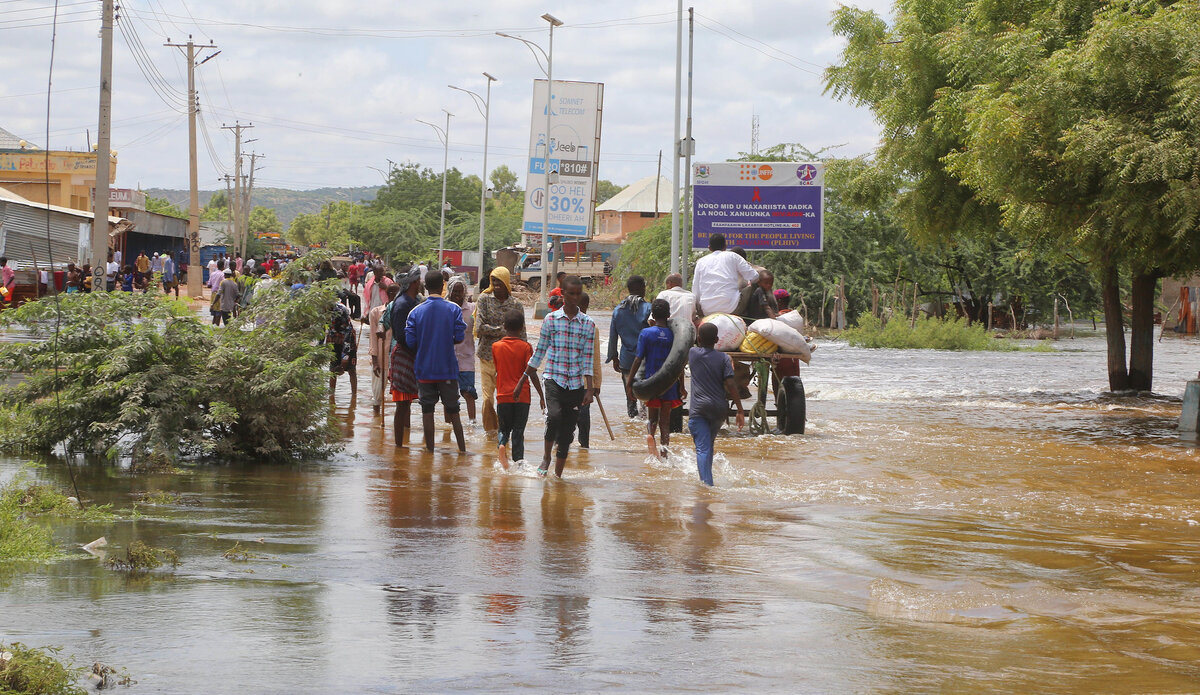Climate change: Saving nature from rising temperatures and conflict around the world
Nairobi - Climate change has become such a major factor of global instability that even the UN Security Council has added it to its agenda.
At the UN Environment Assembly taking place in Nairobi this week, experts including Christophe Hodder, climate peace and security advisor to UN Assistance Mission in Somalia (UNSOM), have been meeting to discuss the complex link between climate change and conflicts.
Mr. Hodder highlighted the environmental damage caused by war and its consequences, explaining to UN News' Anton Uspensky the vicious circle that is created by conflict and a warming planet as it “affects ecosystems, human health and climate”.
Christophe Hodder: Climate, peace and security are very interlinked. Climate change is leading to environmental degradation and conflict over natural resources. A conflict is profound and multifaceted, and it affects ecosystems, human health and climate. Conflicts such as those around the world, like in Ukraine and Gaza, and other, are stark examples of how warfare can lead to significant environmental degradation and long-term ecological consequences.
Warfare often results in direct destruction of ecosystems through land degradation, deforestation, contamination of water bodies, ecosystems, agricultural lands and other areas where military operations can pollute and contaminate the air; they can contaminate water; they can contaminate soil. There's also an impact on human health and livelihoods, the environmental damage to agricultural land. This can lead to outbreaks of diseases. It can also, and often does, lead to food insecurity. There are also worries about the release of hazardous substances from military and warfare.

UN News: What are those contaminants?
Christophe Hodder: There are contaminants like metals, and there is a lot of hazardous waste. There's a lot of chemicals in some of the gunpowder, there's a lot of materials like magnesium. They can go into the water. There's a whole range of them and huge amounts of contamination.
In Somalia, for example, we've seen water points being poisoned. They put poison in water wells as a sort of a controlled insecurity mechanism. So, we can see that it's direct impact on human health and livelihood and that's where that can lead to food insecurity.
There needs to be an understanding that this leads to long-term insecurity and long-term impact. The other impact is also how warfare destroys ‘carbon sinks’ such as forests, causing increased carbon dioxide levels in the ear. In Somalia, for example, Al-Shabaab and other militant groups hide in forests. A lot of bush clearing happens as part of that. And that means cutting down a lot of the carbon sinks.
We really need to think about post-conflict restoration and what the impact of the war and the warfare is. Conflicts and war also lead to displacement, creating environmental refugees or climate refugees. They need new locations for shelter, water, food, which puts extra pressure on different, on new ecosystems. In Somalia, but also in Ukraine and in Gaza there's been a lot of movement of populations. That led to environmental degradation as well, and also to biodiversity loss. Warfare leads to significant destruction of biodiversity and of local conservation efforts as well. Protection of wildlife and natural reserves often becomes a lower priority, which can lead to increased poaching, logging and habitat loss.

UN News: You are a climate security expert working within the UN mission in Somalia. How and at what stage do you assess the dangers and how do you respond to them?
Christophe Hodder: I work on mainstreaming the understanding across security services, military and the UN country team of the interlinkages of climate and conflict. I also do a lot of work around collecting data and information on the interlinkage between climate and conflict. We are looking at climate risk analysis and then provide information over the next six months, a year, five, ten or thirty years on what the climate projection is going to look like and what that means for the military and security.
A lot of my work is around bringing together these security actors looking at state security planning, the police planning, the military planning. What does that mean when we're doing stabilization and how do you then bring in the development funding, the climate financing to actually think about the long-term support to those communities that need it the most? And who are most vulnerable to both climate change but also to militant actors?
My third part is around technical advice: trying to identify where are the biggest adaptation needs and where are they linked to the security needs. And then looking technically at what type of nature-based solutions, what type of big interventions are needed to make that big adaptation and security and peace gains at the same time.
UN News: The understanding that warfare is tightly interlinked with climate damage, with environment damage is a relatively new concept. Has your work already provided certain deliverables? Is there an understanding on behalf of conflicting parties that taking environment into account should also be part of the rules of the warfare?
Christophe Hodder: It’s an ongoing process at its an early stage. There are different levels of understanding and agreement. It's incredibly complicated. In the one case of Somalia, from the political perspective, there's a lot of understanding and agreement. At the local level, we've actually done quite a few pilots now around nature-based solutions and peacebuilding to understand, how you actually reduce tensions over natural resources that are exacerbated through climate shocks, and what sort of nature-based solutions you need to intervene there to make them long-term. And make them environmentally sustainable. That will then give you a chance to attain both the sustainability goals and the peace-building goals.
We now have the Green Climate Fund (GCF) visiting Somalia next week. This is the first case of a ‘fragile state’ or ‘conflict state’, where climate financing is going to be provided. This is a really exciting outcome where we're hopefully going to make some good announcements around financing.

UN News: What are those ‘nature-based solutions’ and at what stage should they be invoked?
Christophe Hodder: We're working with local knowledge and traditional solutions around range land management, around how you rotate cattle, goats… And the issue is, that as the climate crisis increases, then that competition over things like grazing grounds increase. So, between clans, between groups that brings people much more into this competition over that grazing land. We're now thinking around things like how do you create natural resource sharing agreements between groups? Where they understand the impacts of climate change and the future issues of climate change, and where that what's going to happen in the future – with collaboration over the things like grazing lands and areas.
When we get this agreement, we then build the peace around that, we build trust. We then try to find solutions and that's when we do the financing of restoration. For example, restoring the grain, the range land or planting the right type of trees and shrubs to try to help the soil health increase in those areas. And we're trying to do this not just through donor funding.
We're trying to now match this with diaspora. We invite Somalis who live around the world, who are incredibly influential, into funding programs that will help them in the continuation of the growth of this type of sharing agreements. Hopefully, that will lead to a peace building. We'll then link that to the stabilization gain s and aims in those areas and then hopefully this sharing agreement can then keep going up. We then work with the districts, the states and then those agreements can continue to go. So that's what we're hoping to see.
Source: UN News
 UN
UN





